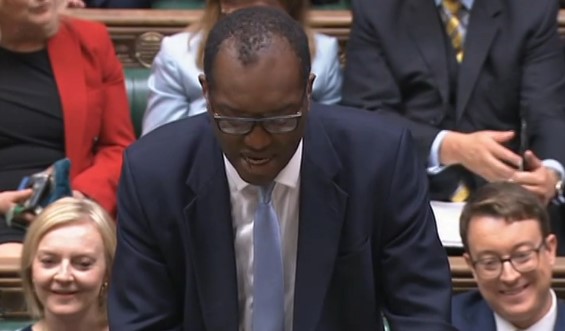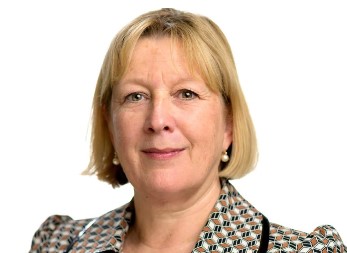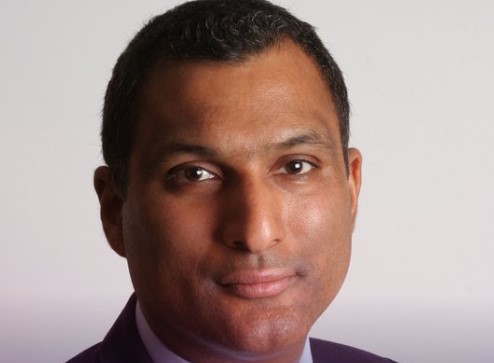Charities have raised concerns around measures outlined in Chancellor Kwasi Kwarteng’s mini budget to improve the UK economy through tax cuts aimed at “helping the better off”.
Among those to raise concerns is think tank New Philanthropy Capital, which warns charities supporting disadvantaged areas that for the current government “tax cuts, mainly helping the better off, are the order of the day”.
“If charities want to work with the new government to shape the agenda in favour of social impact, they’ll need to really consider this,” it said.
NPC added the government “appears to be focused on driving growth through economic measures, but we are yet to hear much about their wider agenda with regard to the social sector and its role in creating social and economic outcomes”.
‘Biggest tax cuts in a generation’
In this week’s mini budget Kwarteng announced the biggest set of tax cuts since 1972, according to the Institute of Fiscal Studies.
The basic rate of income tax has been cut to 19p, while the 45% top rate for the wealthiest has been axed in England and Wales.
Stamp duty has also been slashed through raising its threshold.
Elsewhere, the cap on bankers; bonuses has been lifted and next year’s rise in corporation tax scrapped.
The rise in National Insurance has also been removed and low tax investment zones are to be set up in the UK.
“The tax cuts and reforms I’ve announced today – the biggest package in generations – send a clear signal that growth is our priority,” said Kwarteng.
Poorest ‘hardest hit’
But according to Oxfam head of policy and advocacy Katy Chakrabortty the poorest communities and young people have been “left to cross their fingers and hope” following “the Chancellor’s big gamble”.
“They will be hit hardest by cuts to public services and mounting debt with only the uncertain prospect of economic recovery to bail them out,” she said.
“This mini-budget risks widening the gap between the ‘haves’ and the ‘have-nots’ at a time when across the world, every dimension of inequality – from wealth and income, to gender, race and health – is skyrocketing.
“People are struggling financially, whilst the pandemic saw a new billionaire created every 30 hours.”
Food bank charity Trussell Trust is concerned that the budget measures provide “no additional support to help people afford the essentials we all need to get by”.
It wants the government “to urgently revisit today’s announcement and invest in a stronger social security system” and increase benefits in line with inflation, which is at a 40 year high.
Trust chief executive Emma Revie added: “This announcement comes as our food banks continue to provide 50% more parcels to people in recent months, than in the same period before the pandemic”.
📣 Today’s #MiniBudget provides no additional support to help people afford the essentials we all need to get by.
— The Trussell Trust (@TrussellTrust) September 23, 2022
As prices continue to rise, we are deeply concerned that we will see more people needing to use food banks this winter ⤵️ pic.twitter.com/G0zTEXS7Qc
Meanwhile, Shelter has warned Kwarteng that he has “missed his shot to prevent a rapid rise in homelessness”.
“The real growth this government should be ready for is a growth in homelessness,” it said.
“The Chancellor has done nothing to help the 2.5 million private renters who are already behind or constantly struggling to pay their rent.”
It is particularly concerned by Kwarteng’s announcement that cutting stamp duty will fail to “protect those at risk of losing their homes”.
'The real growth this government should be ready for is a growth in homelessness.'
— Shelter (@Shelter) September 23, 2022
With today's #MiniBudget, the Chancellor has missed his shot to prevent a rapid rise in homelessness. Read our full response below 👇 pic.twitter.com/bMlVmCYLeU
Gift Aid
The government’s tax cuts are outlined in its ‘Growth Plan 2022’ document, published following Kwarteng's announcement.
This reveals that a four-year transition period for Gift Aid relief will apply. This will ensure the income tax basic rate relief continue to be 20% until April 2027, says the document.
The measure has been described as “good news” by Charity Tax Group chair Richard Bray as it “gives charities time to prepare for the ultimate fall in Gift Aid income”.
He also hoped that action is taken over the coming years by the government to “modernise and digitise the Gift Aid system to make it fit for the future”.













Recent Stories